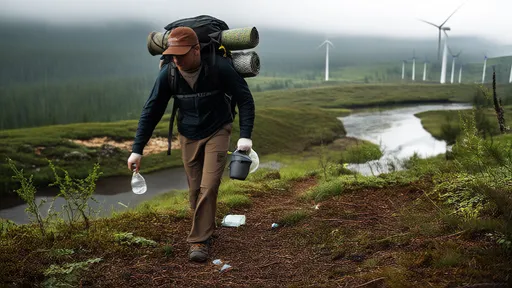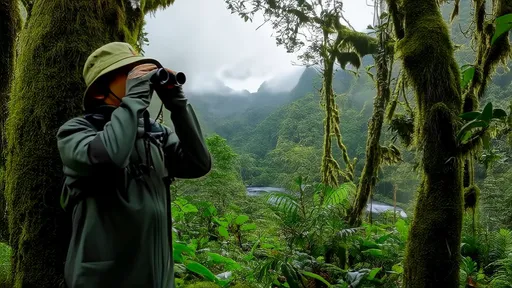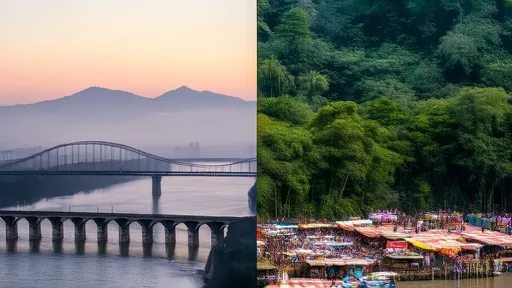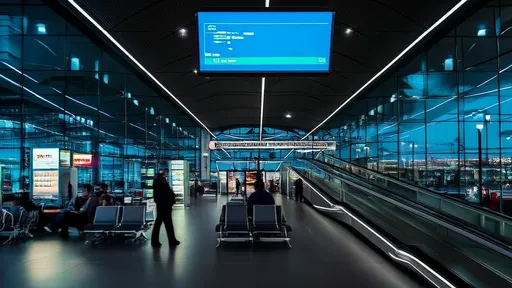As the golden hues of dawn stretch across the sky, a new generation of travelers is redefining what it means to explore our world. The concept of "leave no trace" has evolved from a backcountry camping principle into a comprehensive philosophy for modern globetrotters seeking to protect the very destinations that call to their adventurous spirits. This movement toward mindful travel isn't about sacrifice or limitation, but rather about creating deeper, more meaningful connections with the places we visit while ensuring they remain vibrant for generations to come.
The journey toward environmentally conscious travel begins long before we zip our suitcases closed. Thoughtful planning serves as the foundation for reducing our footprint from the very start. Instead of hopping between multiple destinations in a whirlwind tour, consider immersing yourself in one region for an extended period. This approach not only minimizes transportation emissions but allows for genuine cultural exchange and a slower, more appreciative travel rhythm. When selecting accommodations, look beyond the standard hotel chains to find establishments that prioritize sustainability through energy-efficient systems, water conservation measures, and support for local communities. Many eco-lodges and green hotels now proudly display their environmental certifications, making it easier for conscious travelers to make informed choices.
Transportation represents one of the most significant environmental impacts of any journey, but strategic decisions can dramatically reduce this footprint. Whenever possible, choose trains over planes for medium-distance travel – not only do trains generate substantially lower emissions per passenger, but they offer the added benefit of showcasing the changing landscape in a way air travel never can. For longer distances where flying is unavoidable, select non-stop flights whenever possible, as takeoffs and landings create the majority of an aircraft's carbon emissions. Once you've reached your destination, embrace local transportation systems – buses, trains, bicycles, and your own two feet. Not only will you reduce your environmental impact, but you'll experience the destination through the eyes of those who call it home.
The modern traveler's packing choices speak volumes about their environmental commitment. Instead of single-use plastic bottles, invest in a high-quality water filtration system that allows you to safely drink local tap water in most destinations. Pack versatile, quick-dry clothing that can be washed easily and worn multiple times, reducing both the weight of your luggage and the resources needed for laundry services. Choose reef-safe sunscreens and biodegradable toiletries to prevent chemical contamination of local water systems, particularly in sensitive marine environments. Every item carefully selected for its multi-use capability and environmental friendliness represents a small victory for sustainable travel.
Our daily choices while traveling create ripples that extend far beyond our personal experience. Food selections present a powerful opportunity to support sustainable practices – seek out restaurants that source ingredients locally, reducing the carbon footprint of your meals while supporting regional farmers and producers. Embrace the plant-based options that many destinations offer, as livestock agriculture represents a significant contributor to greenhouse gas emissions. When shopping for souvenirs, bypass mass-produced trinkets in favor of authentic handicrafts made by local artisans, ensuring your travel spending benefits the community directly while preserving traditional cultural practices.
Water and energy conservation shouldn't end when we leave home. Simple practices like taking shorter showers, reusing towels, and turning off lights and air conditioning when leaving your room can significantly reduce the resources consumed during your stay. In destinations where water scarcity is a concern, these practices become especially crucial. Many travelers find that adopting these conservation habits abroad naturally translates to more mindful consumption when they return home, creating lasting positive changes beyond the duration of their travels.
The digital age has transformed how we interact with the places we visit, bringing both challenges and opportunities for the leave-no-trace traveler. While sharing experiences through social media can inspire others to travel responsibly, it's crucial to consider the impact of geotagging specific fragile locations that may not be equipped to handle increased visitor numbers. Instead of pinpointing exact spots, consider tagging broader regions to help distribute tourist traffic more sustainably. Use digital resources to research destinations thoroughly before visiting, understanding their specific environmental challenges and cultural norms to ensure your presence supports rather than strains the local community.
Perhaps the most profound shift in sustainable travel involves redefining what constitutes a meaningful journey. The relentless pursuit of checklist tourism – rushing from one iconic landmark to another – often creates maximum environmental impact with minimal personal connection. The emerging philosophy of slow travel encourages deeper engagement with fewer places, fostering understanding and appreciation that transcends surface-level experiences. This might mean spending a week exploring a single neighborhood in depth rather than racing through a capital city's top ten attractions, or choosing to return to a beloved destination multiple times rather than constantly seeking new stamps in your passport.
As we venture into the world with open hearts and mindful intentions, we become part of a growing community that recognizes our role as temporary guests on this beautiful planet. Each choice we make – from transportation methods to dining preferences to daily conservation habits – contributes to a collective effort to preserve the wonders that call us to explore. The path toward truly sustainable travel isn't about perfection, but about progress: each journey offering new opportunities to learn, adapt, and reduce our impact while deepening our connection to the world and its diverse cultures.
The future of travel beckons us toward greater awareness and responsibility. As we walk ancient paths and navigate modern cities, our footsteps can be light, our presence respectful, and our impact positive. By embracing the principles of leave-no-trace travel, we ensure that the magic of discovery remains possible for generations yet to dream of adventures under foreign skies. The world awaits – not as a resource to be consumed, but as a shared home to be cherished and protected with every journey we undertake.

By /Aug 22, 2025

By /Aug 22, 2025

By /Aug 22, 2025

By /Aug 22, 2025

By /Aug 22, 2025

By /Aug 22, 2025

By /Aug 22, 2025

By /Aug 22, 2025

By /Aug 22, 2025

By /Aug 22, 2025

By /Aug 22, 2025

By /Aug 22, 2025

By /Aug 22, 2025

By /Aug 22, 2025

By /Aug 22, 2025

By /Aug 22, 2025

By /Aug 22, 2025

By /Aug 22, 2025

By /Aug 22, 2025

By /Aug 22, 2025